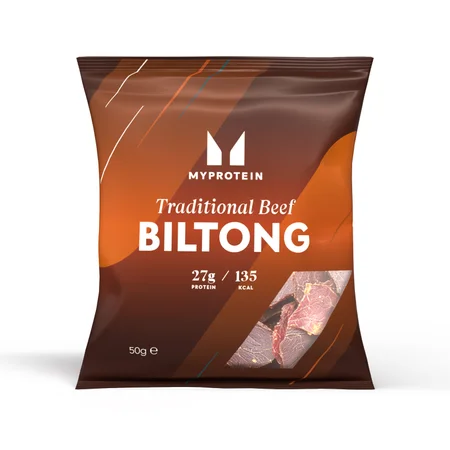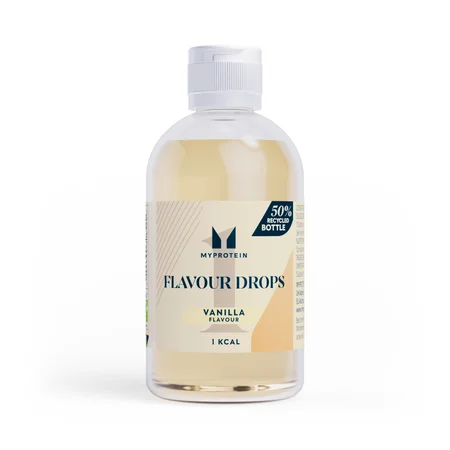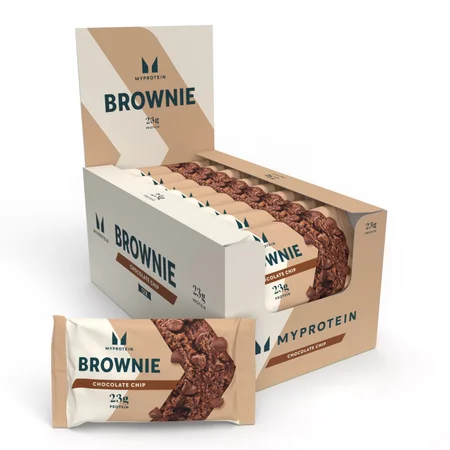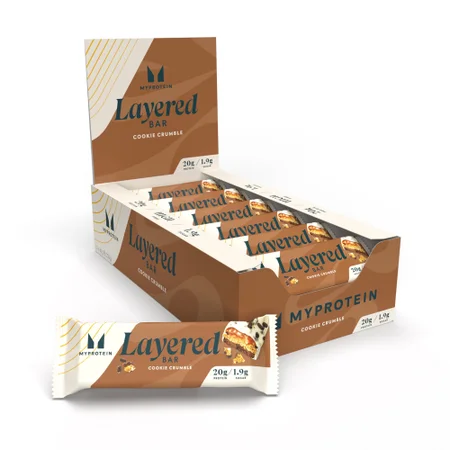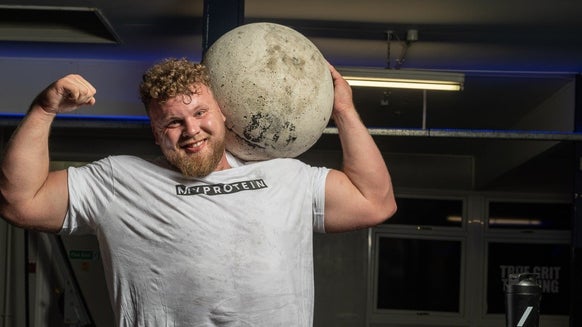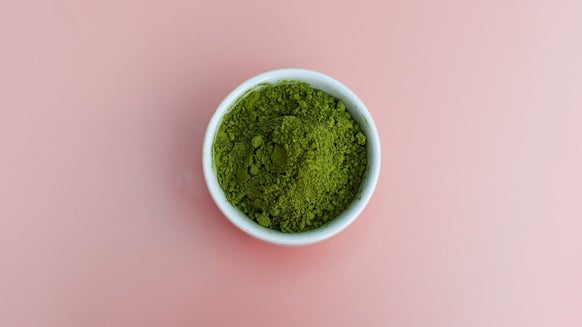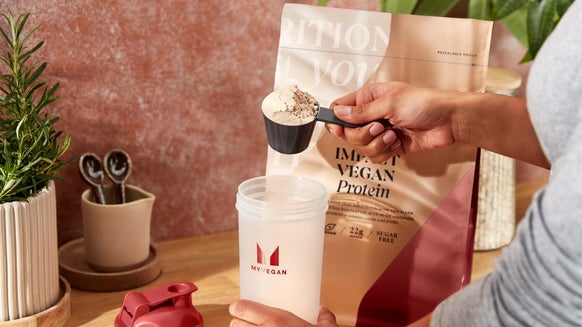How To Stop Sugar Cravings: 15 Ways To Fight Them Naturally

If you get sugar cravings, we've got some good news – that’s totally normal. Sugar is delicious and a quick fuel for our body. Although simple sugars can give you a rapid burst of energy, they also make your blood sugar drop back down just as quickly.
If you can develop eating habits focused on complex carbs and other macronutrients, you’re more likely to find sustainable energy that can help limit those sugar cravings. This article breaks down fifteen ways to reduce that sweet-tooth.
Why do we get sugar cravings?
Our body is actually wired to crave sugar – eating carbohydrates leads to release of serotonin, the feel-good hormone. Because sugar is a simple carbohydrate (that digests easily), it leads to the release of serotonin, making high sugar foods “comforting”.1 As well as triggering the feel-good hormone, eating sugar also releases dopamine, telling your brain that you’re happy.
This positive feedback cycle makes you crave sugar, and over time with high sugar consumption can require even more sugar to get the same “good” feelings.2
Although sugar makes us feel good, too much sugar in our diets can lead to obesity, and different heart health related problems. If you are concerned about your sugar intake, reducing your cravings can be a beneficial step to preventing the overconsumption of calories from sugar.
How to stop sugar cravings
If you learn some ways to stop sugar cravings you can likely be successful with reducing your overall sugar intake. Try the following tips to prevent and stop sugar cravings:
1. Eat satisfying foods
Your body craves sugar when you need energy. Even when you’re trying to lose weight and limit calories, make sure you’re fuelling your body properly to prevent those major crashes that lead to sugar cravings.
2. Plan your meals
This includes snacks. If you have the time and you know your target calories or macros (you can calculate them here), having a plan is the best way to avoid sugar cravings. Whether you make your meal plan for the week or just the day ahead, it's easier to stay on track when you have a plan to follow.
3. Hit your protein goals
Protein is not only great for building muscle; it also helps us feel satisfied. Protein takes time to digest, preventing the feeling of hunger and limiting sugar cravings.

High Protein Shakes To Boost Your Daily Intake & How To Make Them
Your daily protein shake will never be boring again.
4. Fill up with fibre
In combination with protein, make sure you’re getting some fibre with each meal – whether low sugar fruits, vegetables, or whole grains, these complex carbs provide sustained energy that will keep you satisfied.
Tip: Flax seeds are full of fibre and are an easy addition to your morning porridge.
5. Don’t avoid fats
Fats are high in calories but provide necessary nutrients and also slow down digestion (like protein) to keep you feeling full and avoiding sugar cravings. Think avocado toast in the morning or natural peanut butter with apple slices as a snack.
6. Identify your triggers
Are you actually craving sugar, or is just part of your habits? If you always have a sweet treat after your lunch or after your dinner, re-work your schedule to find something else to do after a meal. Whether it’s taking a walk or cleaning up or calling a friend, find another activity to help you prevent sugar cravings and create a new routine.

7. Use fruit to satisfy your sweet tooth
We know that fruit is a natural source of sugar, but it also contains fibre and water that make the sugar digest more slowly and not cause the dramatic ups and downs like refined sugars.
Having fruit planned into your meals (see #2) and easily available (like sitting out on the counter or on your desk) makes it an easy choice instead of digging through the cabinets for any biscuits that might be lying around.<
8. Limit artificial sweeteners
While artificial sweeteners don’t contain sugar, they can still be habit forming. If you only enjoy super-sweet foods, it can be difficult to also limit the real sources of sugar in your diet.So, focus on natural sugars like fruits.
9. Delay your cravings
If you really want a sweet treat, tell yourself you’ll think about it again in 5 minutes and get busy doing something else. By the time 5 minutes is over, you’ll likely have moved on with your day and forget you even had a sugar craving.

10. Drink a calorie free beverage
Oftentimes we choose to snack because we are bored or feeling happy or sad. Find a calorie free beverage that you enjoy instead. Whether it’s ice-cold water with lemon or a plain cup of tea, have these choices easily accessible to help you stay hydrated and avoid sugar.
Black coffee or tea can also give you that energy boost from caffeine if you’re really dragging.
11. Make a list of alternative activities
Are there simple tasks you’ve been avoiding or need to accomplish? If you need to call to make an appointment or clean out a messy drawer, have a hard copy list of these tasks that you can do to keep yourself busy and avoid the sugar craving.
This will also help you accomplish more of these annoying little tasks that we so often put off.
12. Have portion controlled options available
Some sources of sugar can provide other benefits – like the antioxidants in dark chocolate. Have a bar of 70% cocoa or higher dark chocolate available and allow yourself one small portion daily to satisfy your sweet tooth.
Check out our low sugar snacks for other ideas.
13. Take care of your body
Are you recovering adequately with rest days and getting enough sleep? If you’re constantly exhausted and low on energy it can be much more difficult to avoid sugar cravings. Make sure you’re resting enough after the gym, getting quality sleep, and feeding your body with the nutrients it needs.
14. Make sure you’re eating enough
Calorie deficits are necessary for weight loss but cutting calories too low can lead you feeling tired and lethargic – often making you crave sugar even more. Beat sugar cravings by making sure you’re getting plenty of calories from healthy carbs, protein, and fats.
15. Allow yourself an occasional treat
If you do a great job avoiding sugar cravings most days, enjoying a slice of cake here and there and having your grandmas famous trifle isn’t the end of the world. Notice how much more you really enjoy the occasional sugar indulgence rather than having sugar daily.
You can treat yourself and still get your protein up too...try our High-Protein Caterpillar Cake Rolls:
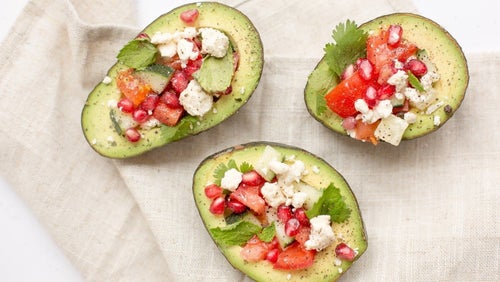
High-Protein, Low-Carb Diets | Best Foods & Meal Prep
Is this the right diet for you? Find out here.
Low-sugar fruits
Here’s a list of the best low-sugar fruit options to satisfy your sweet tooth and nutritional needs.
1. Lemons and Limes: 5g sugar per cup3
These two might be obvious choices for low sugar fruits due to their tart flavour. While lemons and limes are not fruit that you typically eat whole, you can use them to flavour food and beverages while adding minimal sugar and calories. Lemon and lime zest contain concentrated flavours that work well in cooking and baking, while their juice is the perfect zesty finish for meats, fish, and other main dishes. As part of the citrus family, they are high in vitamin C and other antioxidants that can have protective health effects.
2. Blackberries: 7g sugar per cup3
Many members of the berry family are low in sugar and high in antioxidants. Typically, the darker, richer the colour of a fruit or vegetable, the higher they are in anthocyanin pigments (an antioxidant), and blackberries are a very dark purple, packed with nutrition. They’re very high in vitamins C and K, which play roles in immunity and blood clotting.
3. Strawberries: 7g sugar per cup3
Similar to the sugar content of blackberries, strawberries typically taste sweeter but are still low in sugar. They are also packed with vitamin C (which boosts immunity), folate (crucial for women who plan to have children), and potassium (important in heart health). Strawberries are packed with water and fibre, making them low in calories and sugar, perfect for a snack or as part of any meal.
4. Raspberries: 5g sugar per cup3
Raspberries are similar in nutrient content and health benefits to strawberries and blackberries, but are even lower in sugar. Like strawberries, they are high in vitamins C, K, and manganese. Their pink/red colour indicates a high antioxidant content that is not quite as high as that of blackberries.
5. Blueberries: 14g sugar per cup3
Blueberries are packed with antioxidants, vitamins, and fibre. Although higher in sugar than raspberries, strawberries, and blackberries, blueberries have the greatest concentration of antioxidants, specifically flavonoids. The flavonoids in blueberries contribute to their disease fighting properties, and give them their deep blue colour.4 They are also high in vitamins C and K, like other berries.
6. Cantaloupe: 12g sugar per cup3
Cantaloupe is the fruit that is highest in beta carotene, a carotenoid that is also found in vegetable sources like carrots or red bell peppers. Our bodies convert beta carotene into vitamin A, which is important for eye health, immune health, and red blood cells. It’s also high in vitamin C, actually containing all the vitamin C you need for the day in just one cup.3 Cantaloupe is very high in water content, making it hydrating and low in calories.
7. Honeydew: 14g sugar per cup3
Honeydew is another part of the melon family which, like cantaloupe, is similarly low in sugar and high in vitamin C. Its high potassium content can contribute to heart health by helping reduce blood pressure (along with a low sodium diet).3 Potassium is also a crucial electrolyte for hydration, which works well with the high water content of honeydew to help recover after a sweaty workout.

8. Peaches: 13g sugar per cup3
Peaches are a sweet stone fruit that contain a small amount of sugar, but are also packed with antioxidants. Their high fibre content can help with digestion too. Peaches are a great fruit to slice in half and grill for a naturally low sugar dessert, or to serve with high-protein plain Greek yogurt for a high-fibre, high-protein snack.
9. Plums: 16g sugar per cup3
Similar to the dark blue and purple berries, plums are high in antioxidants, specifically polyphenols. These powerful plant compounds have been shown to have antioxidant effects. Although 16g of sugar per cup is higher than some of the other fruits on this list, their high fibre and water content help to keep their impact on blood sugar levels minimal. While whole plums have a high water content, their dried counterpart, prunes, have a more concentrated sweet flavour. Prunes are natural laxatives, while plums have less of this effect.
10. Apricots: 14g sugar per cup3
The third low-sugar stone fruit in this list is the apricot — similar in appearance (and nutrition) to peaches, but with a similar size and flavour to plums. They contain vitamins A and C, potassium, beta carotene, and flavonoids that can boost immunity and prevent oxidative stress to your cells. They’re also available in a dried form (like prunes), but the whole fruit form gives extra hydration due to their natural water content.
11. Oranges: 17g sugar per cup3
Oranges are known for being high in vitamin C, like other fruits, specifically members of the citrus family. They’re larger than lemons or limes, and have a sweeter flavour, making them popular for juicing. While orange juice is still high in vitamin C, eating a whole orange provides the beneficial fibre, which slows the digestion of the fruit and limits its impact on blood sugar. They’re also easily portable with their thick skin and make for a great on-the-go snack.
12. Grapefruit: 16g sugar per cup3
Grapefruit is another popular citrus fruit with a flavour slightly more tart than oranges, though their nutritional profile is similar. They are high in vitamin C like other members of the citrus family, but they’re the biggest fruit of the group. In addition to vitamin C, they also contain some B vitamins and vitamin A. They are popular for those trying to lose weight, which may be due to their high fibre and water content, making them a filling snack. They were part of a fad “grapefruit diet” many years ago, which led to some research supporting their role in weight loss and other studies which showed that grapefruit alone was not a magic weight loss cure. Regardless of its impact on weight loss, grapefruit is clearly a good option for a low-sugar fruit.5
13. Kiwi: 16g sugar per cup3
Kiwis are a small, nutrient-packed green fruits with an inedible, fuzzy skin. Their unique tart flavour and bright green colour make them a great addition to a fruit salad, or easy snack to eat on their own. Like the other fruits on this list, kiwis are high in vitamin C and other antioxidants that can have protective health effects. It also contains high amounts of vitamin K.
14. Cranberries: 5g sugar per cup3
While not typically considered a common fruit for snacking, cranberries are packed with nutrition, similar to the other fruits in the berry family. They do have a more tart flavour thanks to their low sugar content. One major health benefit is their ability to help prevent urinary tract infections due to a high level of a specific antioxidant (proanthocyanadins). They are also high in fibre and have shown a beneficial impact on blood cholesterol levels. When choosing cranberry products or juices, look for those without added sugars. While most of us associate cranberry jelly with Christmas dinner, those homemade dishes are usually packed with sugar. Try using whole cranberries or unsweetened juice to get the health benefits instead.
15. Avocado: <1g sugar per cup3
Avocados are probably not the first food that comes to mind when you think of fruits, but these healthy, fat-packed fruits are about as low sugar as you can find. They’re also high in vitamin K and folic acid, while being very low in overall carbohydrates. The heart-healthy unsaturated fat, as well as potassium they contain, make them a great staple food to incorporate into your meal plan. While not as high in vitamin C as most traditional fruit, they still contain almost 20% of the daily value, along with vitamins B5, B6, and vitamin E.
Take Home Message
While we know that sugar is not good for our bodies, it is also totally normal to have sugar cravings. To really beat sugar cravings, make sure you are giving your body all of the best energy sources from protein, healthy carbs and healthy fats, and take care over your body so that it is well rested and less likely to drive you to choose sugar for a quick fix of energy.
Taking a walk, drinking plain tea, or changing up your routine can be just as effective at giving you the boost of energy you need – while benefiting your health.
READ THESE NEXT:

Natural Fat Burners That Work | Best Fat Burning Supplements
Add these to your next shopping list.

Claire is a Registered Dietitian through the Academy of Nutrition and Dietetics and a board-certified Health and Wellness Coach through the International Consortium for Health and Wellness Coaching. She has a Bachelor of Science in Biology and a Master’s degree in Clinical Dietetics and Nutrition from the University of Pittsburgh.
Talking and writing about food and fitness is at the heart of Claire’s ethos as she loves to use her experience to help others meet their health and wellness goals.
Claire is also a certified indoor cycling instructor and loves the mental and physical boost she gets from regular runs and yoga classes. When she’s not keeping fit herself, she’s cheering on her hometown’s sports teams in Pittsburgh, or cooking for her family in the kitchen.
Find out more about Claire’s experience here.
- Koopman, K. E., Booij, J., Fliers, E., Serlie, M. J., & La Fleur, S. E. (2013). Diet-induced changes in the lean brain: hypercaloric high-fat-high-sugar snacking decreases serotonin transporters in the human hypothalamic region. Molecular metabolism, 2(4), 417-422.
- Avena, N. M., Rada, P., & Hoebel, B. G. (2008). Evidence for sugar addiction: behavioral and neurochemical effects of intermittent, excessive sugar intake.
- National Nutrient Database for Standard Reference 1 Release April, 2018. United States Department of Agriculture. Retrieved from: https://ndb.nal.usda.gov/ndb/search/list
- Yao, L. H., Jiang, Y. M., Shi, J., Tomas-Barberan, F. A., Datta, N., Singanusong, R., & Chen, S. S. (2004). Flavonoids in food and their health benefits. Plant foods for human nutrition, 59(3), 113-122.
- Fujioka, K., Greenway, F., Sheard, J., & Ying, Y. (2006). The effects of grapefruit on weight and insulin resistance: relationship to the metabolic syndrome. Journal of medicinal food, 9(1), 49-54.
